Twenty innovation projects joined forces today to boost European Union efforts towards a circular economy for plastics. The ‘Plastics Circularity Multiplier’ group will communicate to policy makers, the public and industry on a range of EU-funded innovations – innovations that aim to bring plastic materials into the circular economy of the future and create new business opportunities and jobs in Europe.
Launched on 7 October in Brussels, the newly formed group will pool resources and expertise to “multiply” key messages from the ecosystem of projects that receive funding from the EU’s Horizon 2020 research and innovation programme. More than 300 projects dealing with plastics in a circular economy have been supported by the FP7 and Horizon 2020 programmes – part of the EU’s global push to invest in circular economy solutions to achieve the goals of the 2018 EU Plastics Strategy.
“The investment that the EU is making in the circular economy is on such a scale that it’s vital to communicate what that means for the environment, citizens, businesses and cities across the continent,” said Alexandre Dangis of DEMETO, the project leading the group.
“With the initial participation of 19 projects, the Plastics Circularity Multiplier will look to boost our impact, but also identify the regulatory barriers to be overcome and the investment needed if we are to put in place a truly circular economy for plastics in the EU,” added Mr Dangis.
The first round of results by the Plastics Circularity Multiplier will come in the summer of 2020 – earmarked for a Brussels conference showcasing synergies among the participant projects.
The Plastics Circularity Multiplier will go on to open up its activities and participation in September 2020 to all ongoing EU projects, whether in Horizon 2020 or in the new Horizon Europe framework programme.
As Mr Dangis explains, “The group aims to complement existing resources set up by the EU institutions, such as the European Circular Economy Stakeholder Platform, the EASME Project Data Base, and the ‘Innovation Radar’ – all designed to engender a veritable ecosystem of EU investments in the circular economy and innovation.”
The initiative is managed by EuPC, as Communication and Dissemination leader of the DEMETO project, with the participation of other Horizon 2020 Projects in the field of plastics circularity:
CIRC-PACK, Circular Flooring, CREAToR, DECOAT, FiberEUse, HARMONI, iCAREPLAST, ISOPREP, MultiCycle, NONTOX, PlastiCircle, polynSPIRE, PUReSmart, REACT, REMADYL, REPAIR3D, SMARTFAN and TERMINUS.
Life project REPOLYUSE has also joined the initiative as guest participant.
